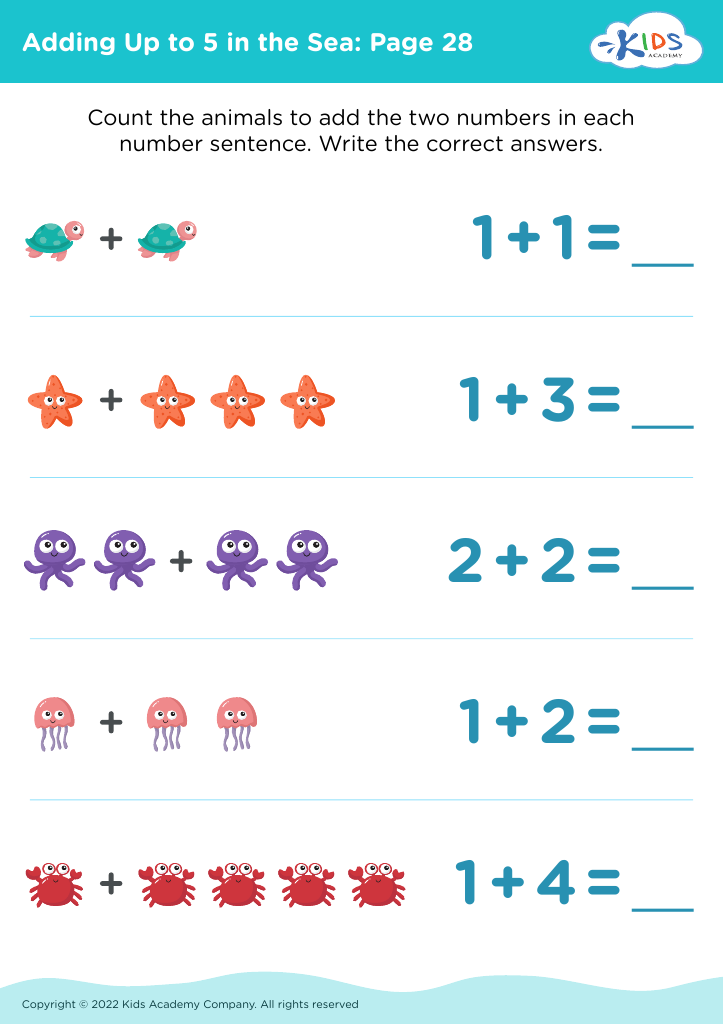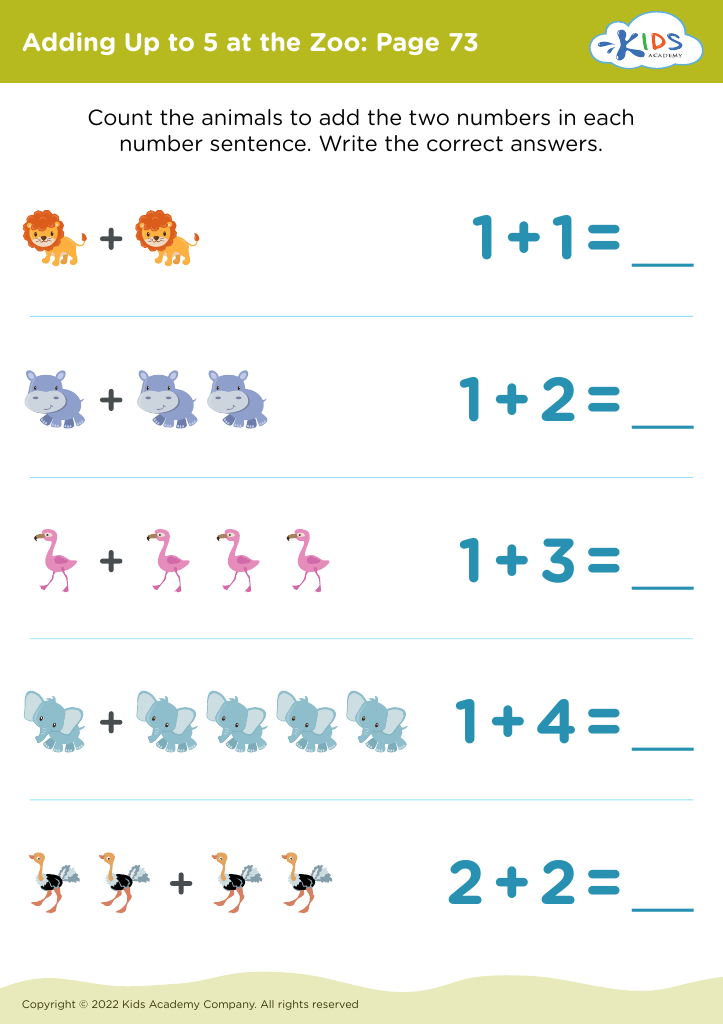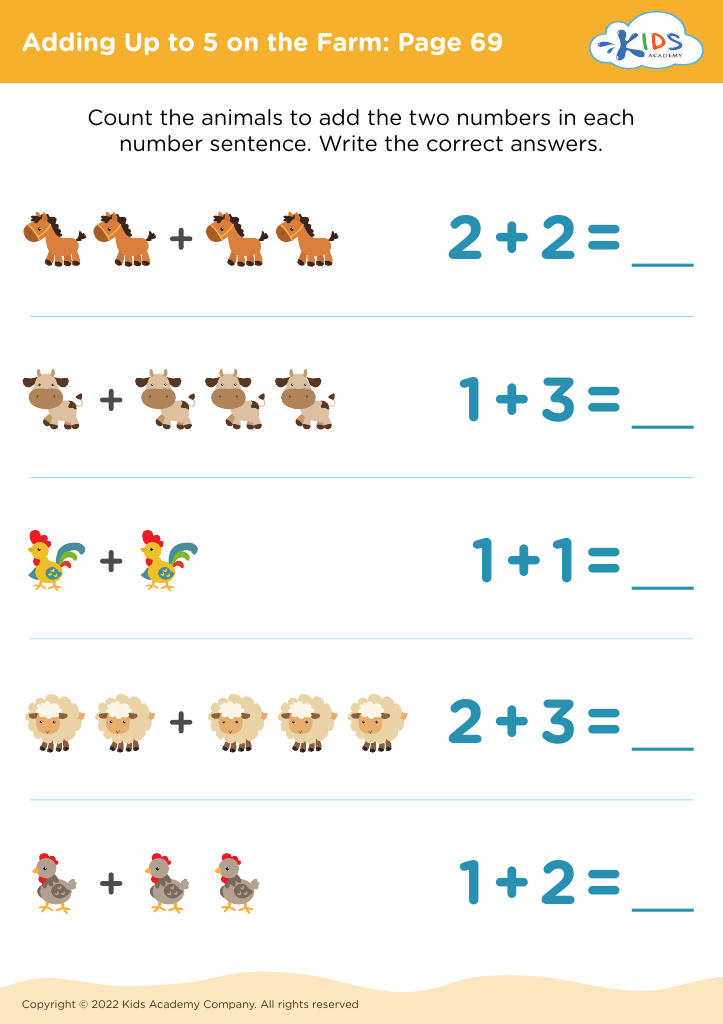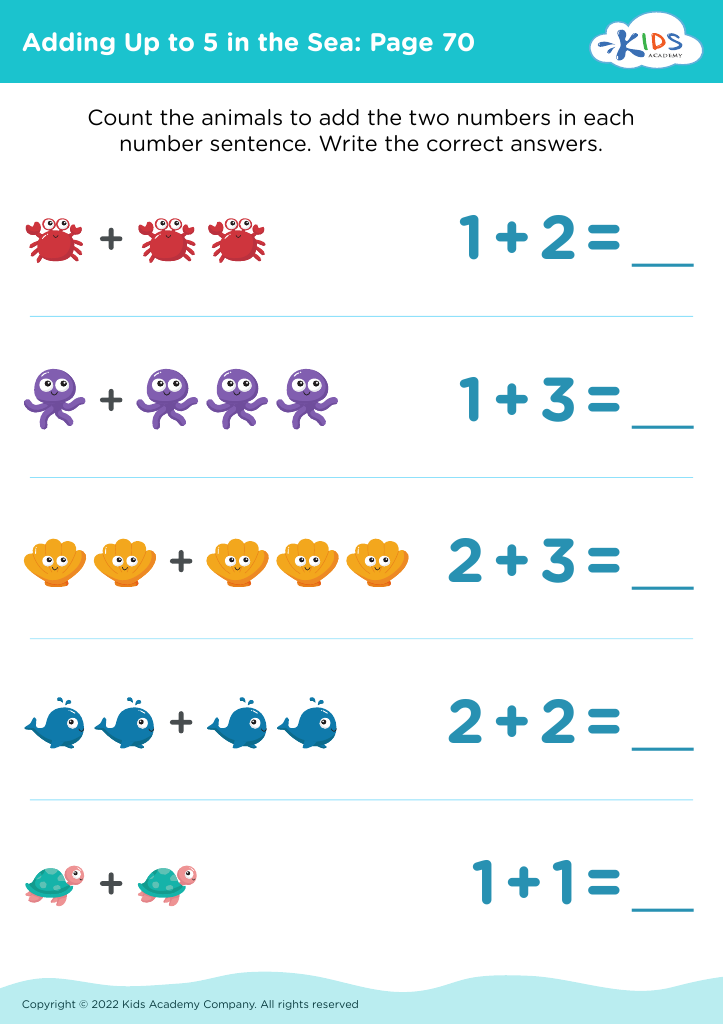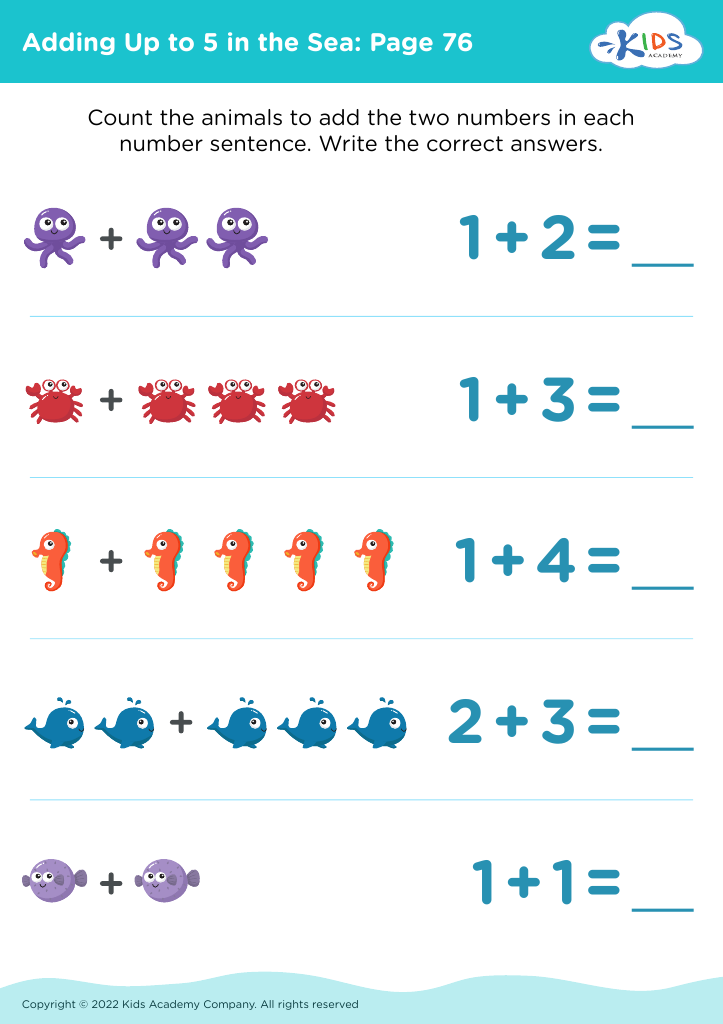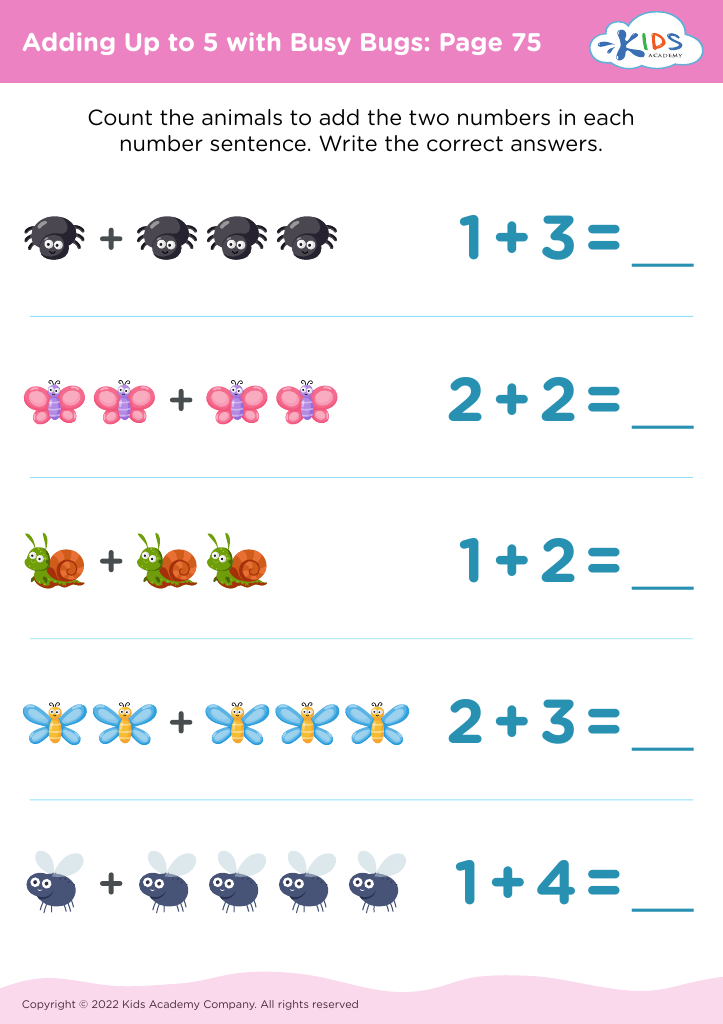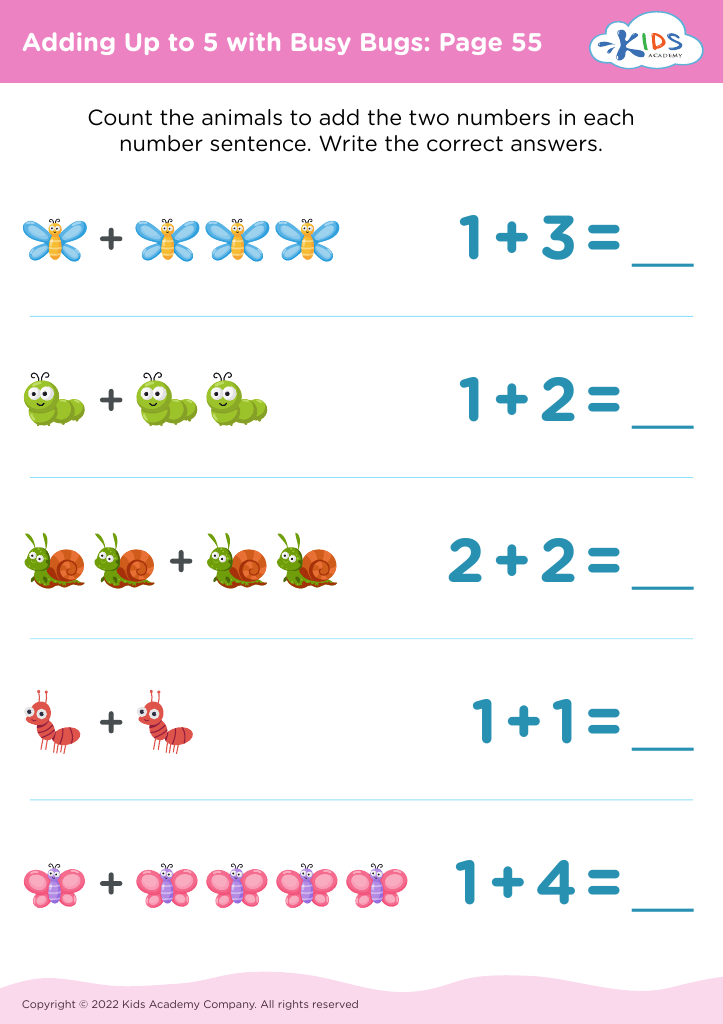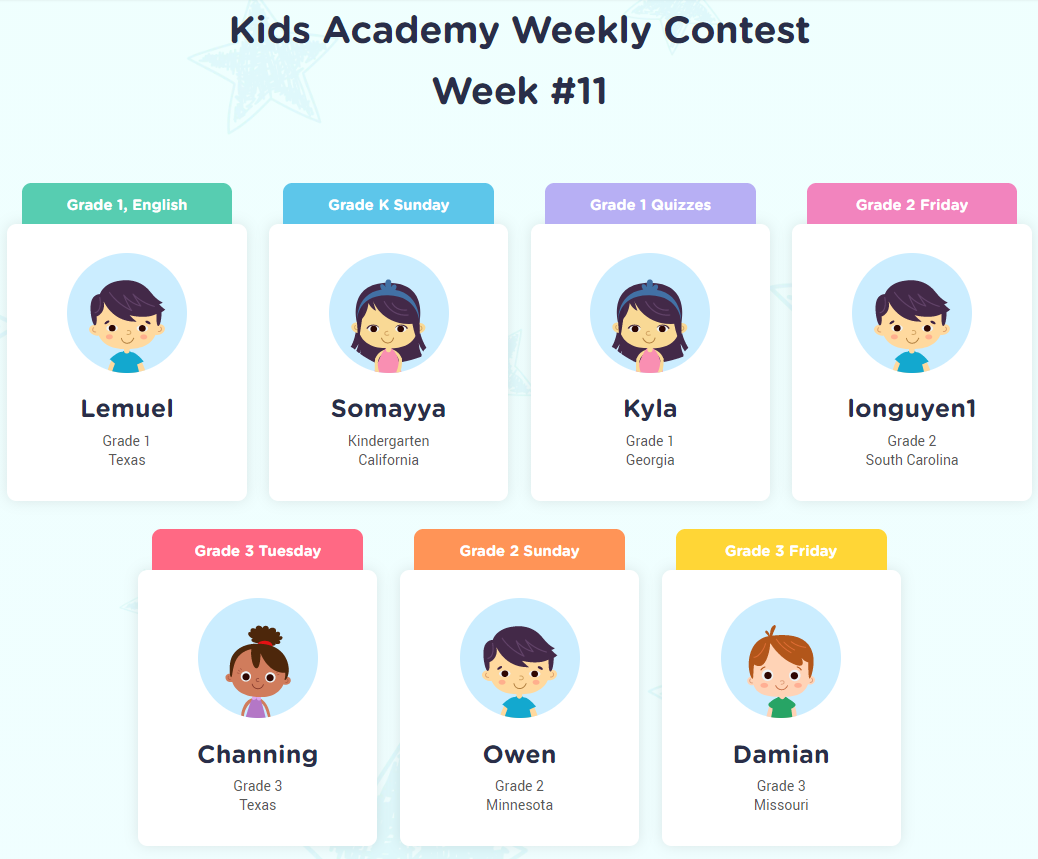Basic Math understanding Math Worksheets for Ages 4-8
12 filtered results
-
From - To
Discover our engaging Basic Math Understanding worksheets tailored for children aged 4-8. Designed to build foundational math skills, these worksheets cover essential concepts like number recognition, counting, simple addition and subtraction, and math patterns. Each activity promotes critical thinking and encourages a love for learning through fun, interactive exercises. Perfect for home practice or classroom use, our resources support educators and parents alike in nurturing young learners. With colorful illustrations and age-appropriate challenges, children will boost their confidence in math while having fun. Explore our collection today to help your child develop a strong understanding of basic math!
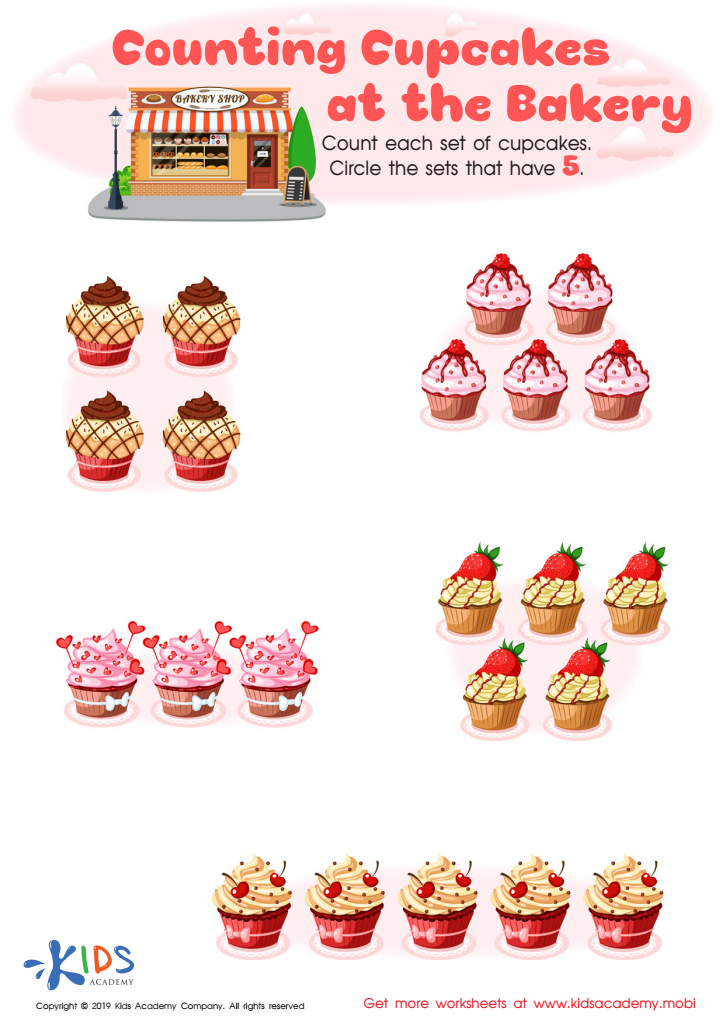

Counting Cupcakes Worksheet
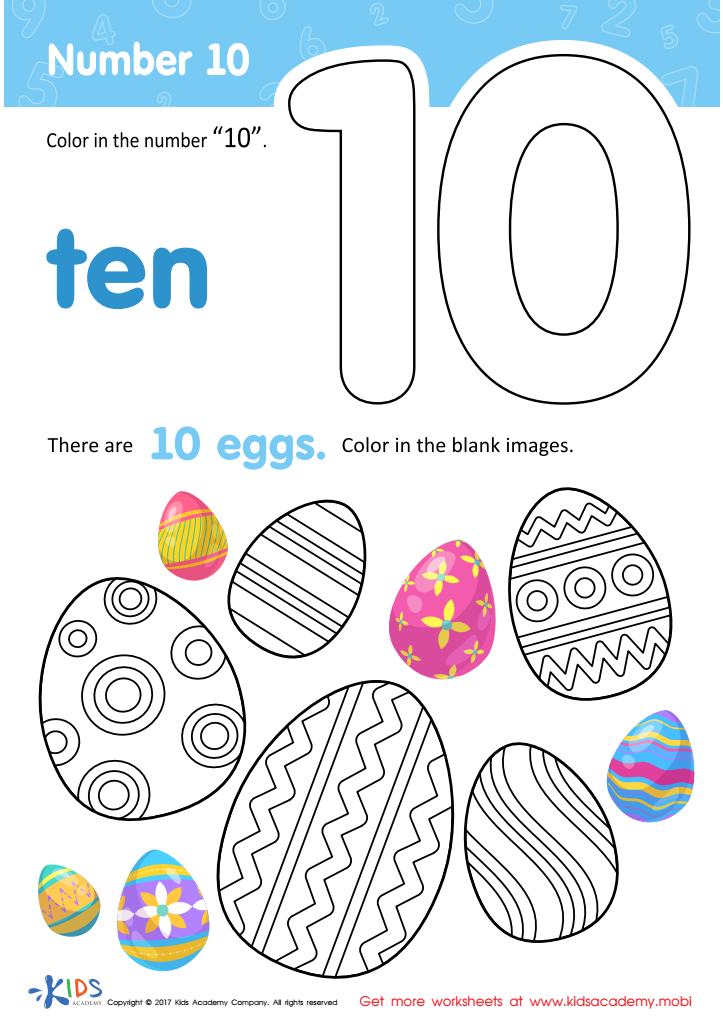

Number 10 Printable
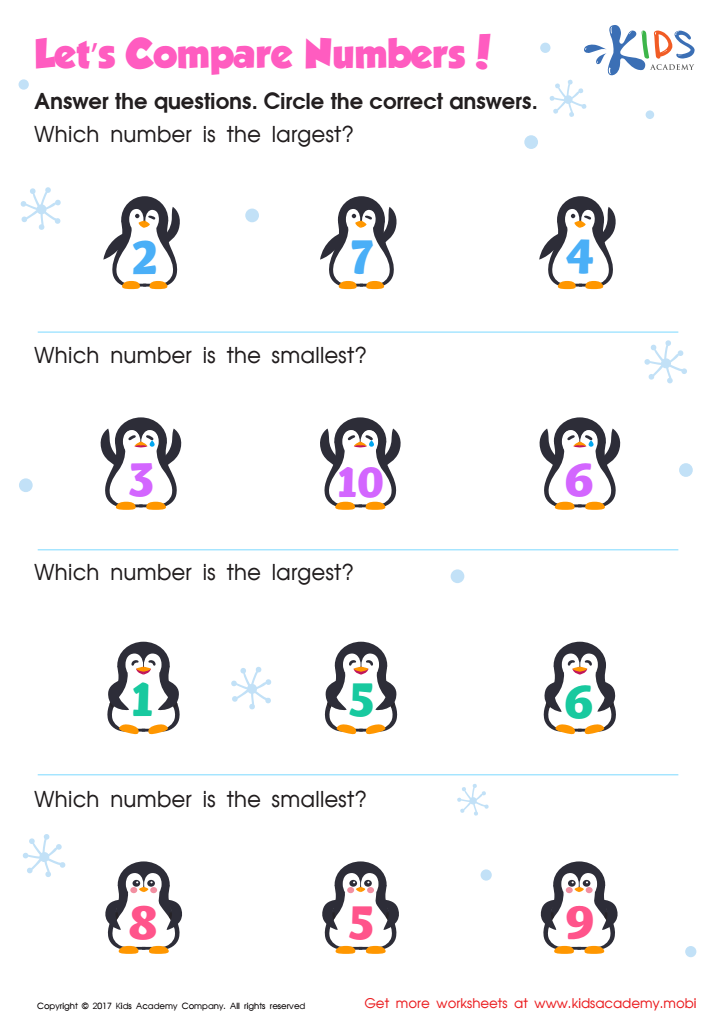

Comparing Numbers 1–10 Worksheet Kindergarten
Basic math understanding for children aged 4-8 lays the foundation for future academic success and cognitive development. During these formative years, children are naturally curious and eager to learn, making it an ideal time to introduce mathematical concepts in a fun and engaging way. Parents and teachers should care about this because early math skills not only involve counting but also foster critical thinking, problem-solving, and analytical abilities.
Moreover, research shows that early math skills are a strong predictor of later academic achievement, including literacy and STEM disciplines. When children grasp foundational math concepts such as addition, subtraction, shapes, and patterns, they build confidence and a positive attitude towards learning.
Additionally, incorporating math into daily life and play helps demystify the subject, making it less intimidating as they progress to more complex topics in later grades. Engaging with math early on also fosters collaborative learning; family activities and classroom projects encourage teamwork and communication skills.
Ultimately, investing time and resources in teaching basic math during these critical years equips children with essential life skills and prepares them for a successful educational journey, making it crucial for both parents and teachers to prioritize this aspect of early childhood education.
 Assign to My Students
Assign to My Students
